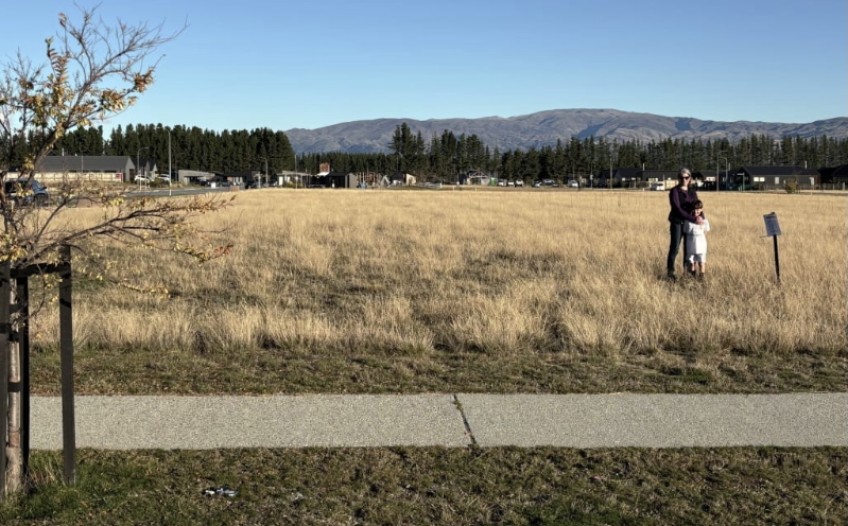Lake Hāwea liquor store opponents air concerns

Opening a Super Liquor in Lake Hāwea would amplify harm, fragment social cohesion and be insulting to the community, opponents say.
But the applicant for the store says they take the rules and regulations seriously, and the store could be a catalyst for future commercial growth in the area, benefitting the community.
Queenstown Lakes District Council’s District Licensing Committee held a hearing over three days this week for an application from Keyrouz Holdings to establish a Super Liquor in the Longview subdivision in Lake Hāwea.
Publicly notified in May, the application for a liquor license received a record 540 submissions – all but two in opposition.
Speaking at the hearing this week, Southern Medical Officer of Health Dr Michael Butchard said the number of objections had been the largest of any in the district.
He questioned how the liquor store could be for the community’s benefit, when such a large portion of the community did not think it was.
“Given the sheer size of alcohol-related harm, it's a reasonable position for a local person to object to increasing availability of this drug in their community,” he said.
“I'm not surprised that over 530 objections were received. It's a reasonable response to that burden of harm.”
He said while Lake Hāwea was not deprived economically, it was deprived when it came to access to services such as a GP.
“A bottle store before a GP is not the right order.”
Many locals spoke to their submissions at the hearing this week raising issues like alcohol-related harm, health issues, road accidents, access to alcohol, litter, its visibility to young people and lack of community infrastructure. They also argued Lake Hāwea had enough places to buy liquor already.
The proposed liquor store would be within 110m of a school bus stop and 200m from a playground.
The applicant argued Lake Hāwea is a stable and well-functioning community that is not of high risk or vulnerable to alcohol harm.
Lake Hāwea Voices spokesperson Lisa Riley lives just 200m from the proposed site and said the submissions in opposition came from people who would “live with the consequences of this decision”.
“Your duty is to minimise harm, not balance it against convenience or profit ... A license can meet that test when it's in a true commercial area, well away from schools, playgrounds, and homes, in a town with proper police and medical services, with appropriate density, and run by an operator with a strong compliance record.
“What we have here is the opposite: a large liquor outlet beside a school bus stop and playground, outside the alcohol ban area in a town with no police station, no hospital, and already one of the highest outlet densities in the district.
“Approving this license would not minimise harm, it would amplify it.”
Riley argued Lake Hāwea didn’t have the infrastructure to deal with alcohol-related incidents given the lack of police station, hospital or after-hours medical care.
“That makes the duty to minimize harm even more important here. This isn't an abstract planning exercise. It's about real-world consequences for a small community.”
She referred to last week’s burglary of the applicant’s Remarkables Park Super Liquor store.
“Kids deserve to feel safe going to bed, not lying awake wondering if someone might ram through their local store or their home to steal alcohol in a community with no police station or immediate emergency response, the trauma from a single event like that would ripple through families.
“This is not about prohibition. It is about the law doing what Parliament intended - protecting families, children and communities from predictable harm.”
Keyrouz Holdings director Alan McKay said their business depended on operating under the Sale and Supply of Alcohol Act and so they took it seriously.
“We try and keep the best systems we can in our business to make sure that everything runs smoothly and most of the time it does.
“We're proposing what I consider to be an attractive well-built premises. We're putting it in an area where there's going to be considerable growth. It's right smack bang in the middle of a commercial area and we think that it will eventually complement the area,” he said.
“We support communities both personally and through our business. We think we can work with the community to satisfy the people who object to the business.”
He said he believed the establishment of the store could be a catalyst for future commercial growth in the area and attract other businesses.
"It takes a bit of confidence to put a new business in the middle of a vacant paddock, but it is a commercial area and what we're doing, I think, will attract other businesses which will eventually help that community.”
He said the group did not yet own the site but had a conditional offer subject to off license approval.
Another resident, Sandra McAuley said as a new subdivision, Longview was still forming its identity.
“Placing a large high visibility drive-in liquor store at the entrance to Longview risks defining the community by alcohol availability, before the community has even had the chance to define itself by connection, identity and belonging.
“The research shows that new housing developments benefit most when early investment is made in shared spaces, support networks and opportunities for community connection. Alcohol outlets do not create social cohesion, they fragment it,” she said.
“If this drive-in super liquor outlet is established at Longview, it will shape how the community is seen, how it develops, and how safe and supportive families feel living there.”
Another local who submitted said: “In my view it’s insensitive and insulting for a commercial alcohol outlet to seek to impose itself on this community with a substance that is by any measure unhealthy.”
“This community has made it abundantly clear we do not want this in our community ... we’ve made our point.”
“The more it gets normalised everyone will see going to the liquor store as equivalent to going to the corner dairy for a bottle of milk,” said another.
Resident Joel van Riel said: “What we want in our community is what we should have in our community and our voices should be heard.
“We have access to all the alcohol we need.”
The Gate Group chief executive Glen Christiansen said the group took the sale and supply of liquor and reduction of harm “very seriously”.
He said there had never been complaints from neighbours of the group’s existing stores. He said the group believed the community was growing and they wanted to grow with it.
Rebutting arguments the building could dominate the area, Christiansen said in time they believed the one-storey building would be surrounded by other commercial properties as well.
“It's important that we build to a high standard so it stands the test of time,” Christiansen said.
He said, if approved, they expected the process of building and opening to take 12 months.
Twenty-seven objectors spoke at the hearing.
The committee that presided over the hearing was made up of Chris Cooney, John Mann and Lyal Cocks. A written decision will be released.

























